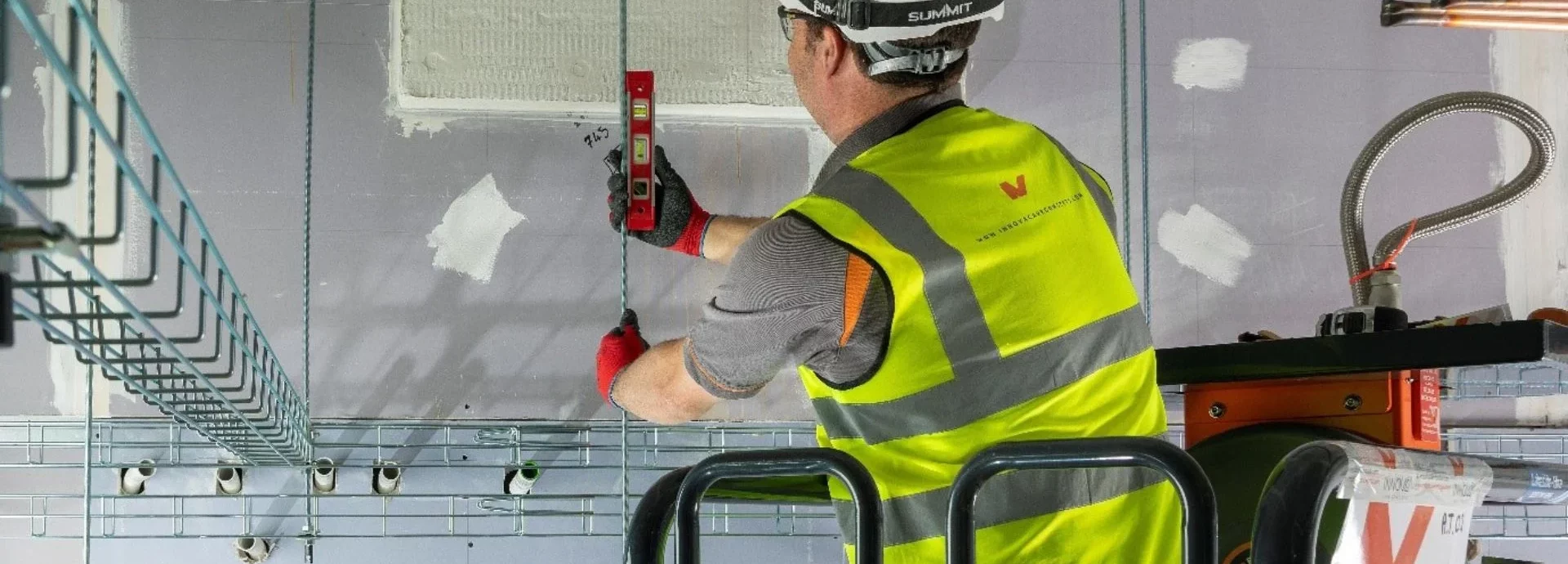Smart Hospitals: Integrating Technology for Enhanced Patient Care
Posted on 8 January 2025 By Lucy Fisher

In This Article
The healthcare landscape is undergoing a huge change thanks to technological advancements. From artificial intelligence (AI) and the Internet of Things (IoT) to robotics and telemedicine, digital innovations are revolutionising the way hospitals operate, improving both patient outcomes and staff efficiency. At the forefront of this revolution are smart hospitals — healthcare environments where technology is integrated to enhance the patient experience, streamline workflows, and empower medical staff.
But how are these cutting-edge technologies reshaping hospital settings and transforming the healthcare experience? From personalised care to more efficient operations, smart hospitals are setting new standards in the healthcare industry.
IoT in Patient Rooms
Personalised Care at the Touch of a Button
The Internet of Things (IoT) is at the heart of many smart hospital innovations, particularly in patient rooms. IoT-enabled devices, from smart beds to wearable health trackers, are enhancing the way patients experience care. These technologies communicate real-time data to healthcare teams, reducing the need for constant check-ins while simultaneously improving comfort and safety for patients.
IoT devices in patient rooms significantly improve patient comfort and care. Smart beds automatically adjust to reduce pressure on the body, helping prevent complications like bedsores. Wearable devices monitor vital signs in real time, alerting healthcare providers to any irregularities. This allows for immediate responses to emergencies, such as falls or sudden changes in a patient’s condition. Additionally, IoT sensors like fall detectors and heart rate monitors ensure that healthcare staff are promptly notified when urgent intervention is required.
To ensure that IoT devices can be integrated into hospitals, they must seamlessly connect to any existing systems to make sure that data can be collected, shared, and accessed by different healthcare staff.
AI-Powered Healthcare Apps
Bridging the Gap Between Patients and Providers
AI-powered healthcare applications are bridging the communication gap between patients and healthcare providers. These apps can handle a range of functions, from virtual consultations and appointment scheduling to symptom tracking and diagnostic assistance.
These apps also enable doctors to monitor patients remotely, answer questions quickly, and offer individualised treatment plans based on insights drawn from patient data. Virtual assistants, such as AI-driven chatbots or voice assistants, can address common patient inquiries and provide basic health advice. AI diagnostic tools can also help clinicians interpret medical imaging or lab results, reducing errors and speeding up treatment. This combination of enhanced communication and data-driven insights is improving both the patient experience and clinical outcomes.
Healthcare apps should have intuitive, user-friendly interfaces, particularly for patients who may not be tech-savvy. Consider using clear navigation and accessible language to improve patient engagement.
Operational Efficiency Tools
Streamlining Hospital Workflow
In addition to patient care, smart hospitals are optimising their internal workflows with technologies designed to reduce administrative burdens and streamline hospital operations. From robotic process automation (RPA) to digital scheduling boards, these tools enhance staff efficiency and ensure resources are used more effectively.
Automation tools in smart hospitals are optimising operations by reducing the need for manual data entry, allowing healthcare workers to dedicate more time to patient care. Smart systems also enhance resource allocation by monitoring and predicting inventory needs, ensuring that critical supplies are always available and minimising waste. For example, robotic delivery systems autonomously transport medications, linens, and supplies, freeing up staff from routine tasks. Similarly, smart inventory systems track stock levels and automatically reorder medical supplies, preventing both shortages and overstock. These innovations are improving efficiency and ensuring smoother hospital experiences for both staff and patients. Centralised dashboards or hubs can be designed and used to allow staff to access critical information quickly, improving the speed of decision-making and response times.
Interactive Patient Engagement Tools
Turning Patients Into Active Participants
Empowering patients to take an active role in their recovery is another essential feature of smart hospitals, which in turn, aids recovery. Interactive technologies such as touchscreen monitors, gamified recovery apps, and entertainment systems can transform the hospital experience, providing education and engagement for patients.
Digital platforms in smart hospitals are enhancing patient engagement by allowing individuals to track their recovery, follow treatment plans, and participate in therapeutic exercises through gamified apps. These tools not only promote active involvement in the healing process, but also help reduce the anxiety and boredom that often accompany hospital stays by providing access to entertainment and educational content. Touchscreen displays can guide patients through their recovery, offering personalised plans and progress updates, while virtual reality (VR) technology supports pain management and physical therapy by distracting patients and facilitating rehabilitation with interactive exercises. These technologies are improving both the patient experience and recovery outcomes. Patient-facing technologies must be secure, with strong privacy protections to safeguard sensitive health data. It’s also important to ensure that these devices are easy to use and accessible to all patients, including those with disabilities.
Conclusion
As we’ve seen, smart hospitals are harnessing technology to transform healthcare environments. From IoT-powered patient rooms to AI-driven apps and operational tools, these innovations are improving the patient experience, enhancing staff efficiency, and streamlining hospital operations. In the evolving landscape of healthcare, technology is no longer a luxury; it’s a necessity.
Are you ready to integrate smart hospital technologies into your healthcare facility? Our team can help you design and implement solutions that meet the unique needs of your hospital. Contact us today to learn more about how we can support you in creating a smarter, more efficient healthcare environment.
Speak to The Experts
Need assistance with product enquiries, general inquiries, or product support? Our Phonelines are open 9am - 5pm Monday to Friday
0113 519 0319
Or, fill out the form for a call back.
